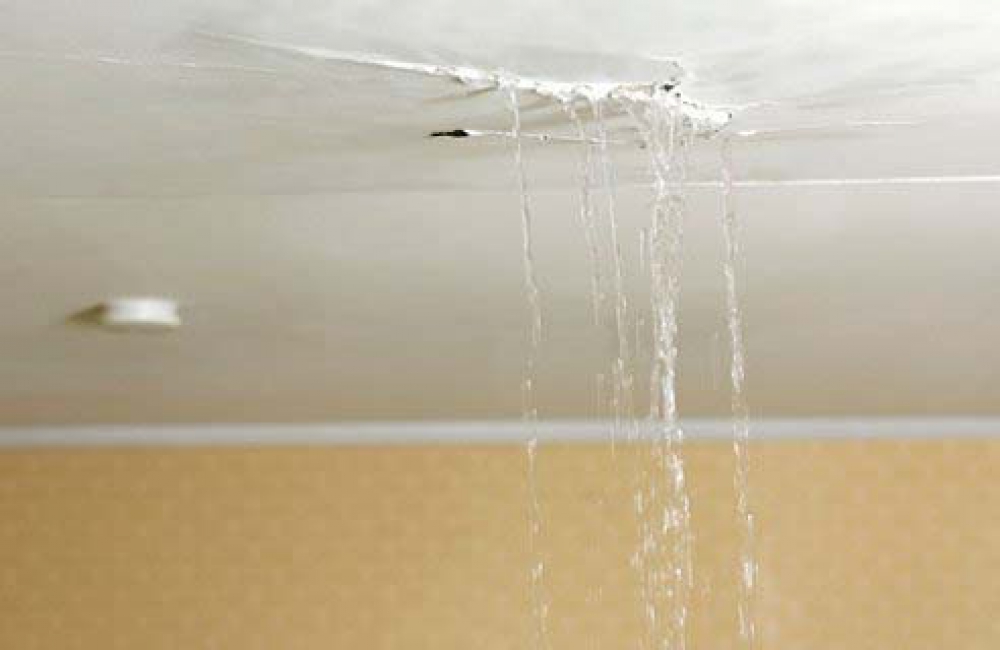A sudden cold spell can wreak havoc on water pipes, geysers and your sense of humour. The last thing anyone wants to contend with is water pouring out of your ceiling in the middle of an icy winter’s night. But since it is ‘geyser season’, it is good to know that you have homeowner’s insurance to protect you from the financial implications of such an unforeseeable and inconvenient mishap.
Insurance brokerage and risk advisors, Aon South Africa provides some helpful tips to guide you in dealing with the watery mess and avoiding the considerable resultant damage that can occur to furniture, electrical circuits, ceilings, floors, carpets, curtains and so on.
Aon recommends the following steps when faced with a burst geyser or water pipes:
- Prevention is better than cure: Contrary to popular belief, geysers usually don’t suddenly burst, but rather suffer wear and tear and corrosion over time which eventually causes a rupture or leak. Regular maintenance will extend the life of your geyser and it should be serviced every three to four years if the water quality is good, and every two years if you have what is known as ‘hard’ water. A service involves checking the magnesium sacrificial anode element and thermostat and replacing these if necessary, clearing any scale build-up and checking the overall state of the system. The sacrificial anode protects the geyser from rust by attracting any corrosion to the anode, and thus protects the metal components in the geyser. Anode rods typically require replacement every five years depending on the water quality – regular servicing of this will extend the life of your geyser and help avoid unplanned geyser ‘bursts’.
- Install a drip tray: Ensure that you have a drip tray installed and that it is level – this will catch any leaking water and in the event of a major burst, will channel most of the water outside the ceilings via an outlet pipe, lessening the amount of consequential damage.
- Know where your electricity board, water mains and water stop-cock are: The midst of a watery crisis is not the time to try and find out where the household safety features are. Familiarise yourself with where your electricity and water mains and stop cock are located before things go pear-shaped and you break some toes fumbling around in the dark.
- If your geyser has burst, immediately switch off the geyser electrical isolator switch on the main distribution board – it should be marked with a ‘geyser’ label.
- Turn off the water mains and the stopcock fitted to the inlet pipe of the geyser. This will stop all the water flow to your house.
- Open all the hot water taps in your house to relieve the pressure inside the geyser – this will lessen the amount of water pouring out of your geyser and reduce the chances of further water damage.
- Move as much of your furniture and other valuables away from the water and try and limit the damage before it spreads further.
- Contact your insurance broker to log your claim and make arrangements for an accredited and qualified plumber to assist you. Aon offers a 24-hour incident care line so you can call for immediate assistance, 24/7.
“Not all insurance policies are created equal so it’s important to make sure that you are properly covered from the outset for the replacement costs of the geyser, any burst pipes and resultant damage. Policies vary quite substantially, some may only provide cover for resultant damage and do not cover the replacement of the actual geyser and pipes, which can run into thousands of Rands. Some insurers also stipulate an excess per item claimed for, rather than one excess on the total claim. This can have significant financial implications for you that you may be unaware of. It is also important to remember that there is a difference between buildings and household contents cover, and to know what each one covers,” explains Mandy Barrett, Head of Marketing at Aon South Africa.
“Your buildings policy covers you for replacing the bricks and mortar and fixtures in your home – which equates to your geyser, pipes and ceilings as a result of a burst geyser. Your household contents cover is, however, separate to buildings cover and insures the contents of your home, such as your furniture, clothes and appliances. Should you claim under both buildings and contents policies, you may find that you have to pay two excesses as this would be lodged as two separate claims,” she says.
“It’s exactly these types of scenarios that demonstrate the value of having a professional broker on your side to advise on the policy terms and conditions and to ensure that you have the best possible cover for your available budget. Your broker is there to look out for your best interests and if it comes down to it, handle any negotiations and interactions with the insurer on your behalf,” concludes Mandy.
Also view:
Water Damage and Claims from Home and Household Insurance
